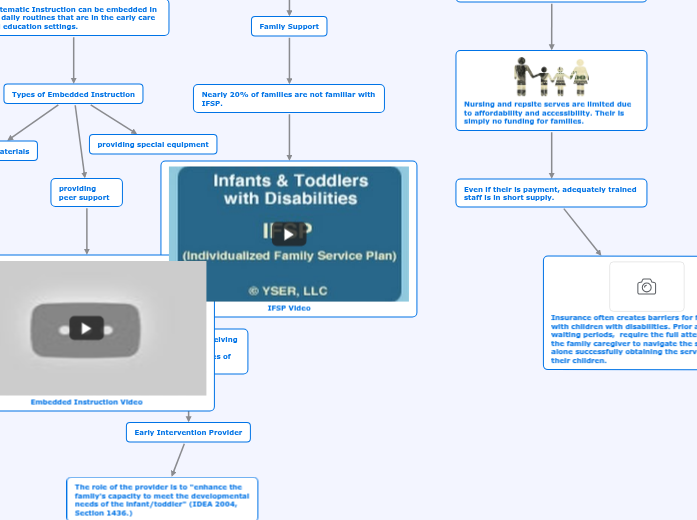Chapter Seven
Systematic and Individualized Instruction
Systematic Instruction can be embedded in the daily routines that are in the early care and education settings.
Types of Embedded Instruction
adapting materials
providing special equipment
providing peer support
Embedded Instruction Video
Navigating Services and Supports
The home is the natural site for caregiving. Nursing or respite services are frequently provided in the home.
Nursing and repsite serves are limited due to affordability and accessibility. Their is simply no funding for families.
Even if their is payment, adequately trained staff is in short supply.
Insurance often creates barriers for families with children with disabilities. Prior approvals, waiting periods, require the full attention of the family caregiver to navigate the system. Let alone successfully obtaining the services for their children.
Early Intervention and Early Education
Family Support
Nearly 20% of families are not familiar with IFSP.
IFSP Video
Family Issues and Challenges
43% of families receiving early intervention services had incomes of $25,000 or less.
Early Intervention Provider
The role of the provider is to "enhance the family's capacity to meet the developmental needs of the infant/toddler" (IDEA 2004, Section 1436.)
The role of the early interventionist is to coach the caregiver on meaningful intervention to support functional outcomes, increase the child's participation in everyday routines, and promote positive interaction between caregiver and child.









